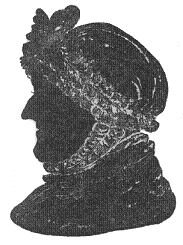I just read this article in the American Chronicle:
“Our Flirtations with Regencies”, by Sonali T. Sikchi, and I can’t decide whether to be amused or annoyed. No, it’s annoyed.
This thing is full of the most ridiculous broad generalizations about Regency Romances: what could be culled from reading several Barbara Cartlands and assuming the rest are exactly the same.
A few examples:
“…Regencies rarely make even a pretense of incorporating historical events and elements in their stories.”
“The women in the Regency Romance stories are always young girls in their late teens or early twenties.”
“The women gorgeous and unique, sexually innocent and passionate; the men striking and arrogant, sexually experienced and passionate.”
“The stories follow a formula…”
OK, so here are some of my favorite counter-examples, in no particular order:
LOVE’S REWARD, by Jean Ross Ewing (Napoleonic war hero, espionage/intrigue plot)
THE CONTROVERSIAL COUNTESS, by Mary Jo Putney (espionage/intrigue, unconventional heroine)
THE RAKE AND THE REFORMER, by Mary Jo Putney (older heroine who is too tall, with mismatched eyes! alcoholic hero)
THE CAPTAIN’S DILEMMA, by Gail Eastwood (French POW hero)
AN UNLIKELY HERO, by Gail Eastwood (adorable virginal hero)
THE VAMPIRE VISCOUNT, by Karen Harbaugh (paranormal)
KNAVES’ WAGER, by Loretta Chase (unconventional heroine)
SNOWDROPS AND SCANDALBROTH, by Barbara Metzger (another great virginal hero)
In my own September book, LADY DEARING’S MASQUERADE, the plot revolves around London’s Foundling Hospital (gasp–a real historical institution), the heroine is in her thirties and not a virgin, and the hero is sexually inexperienced. (But he catches on fast.)
But the author of this article seems to be implying we’re a bunch of hacks cranking out endless stories according to a prescribed formula. Grrrr….

